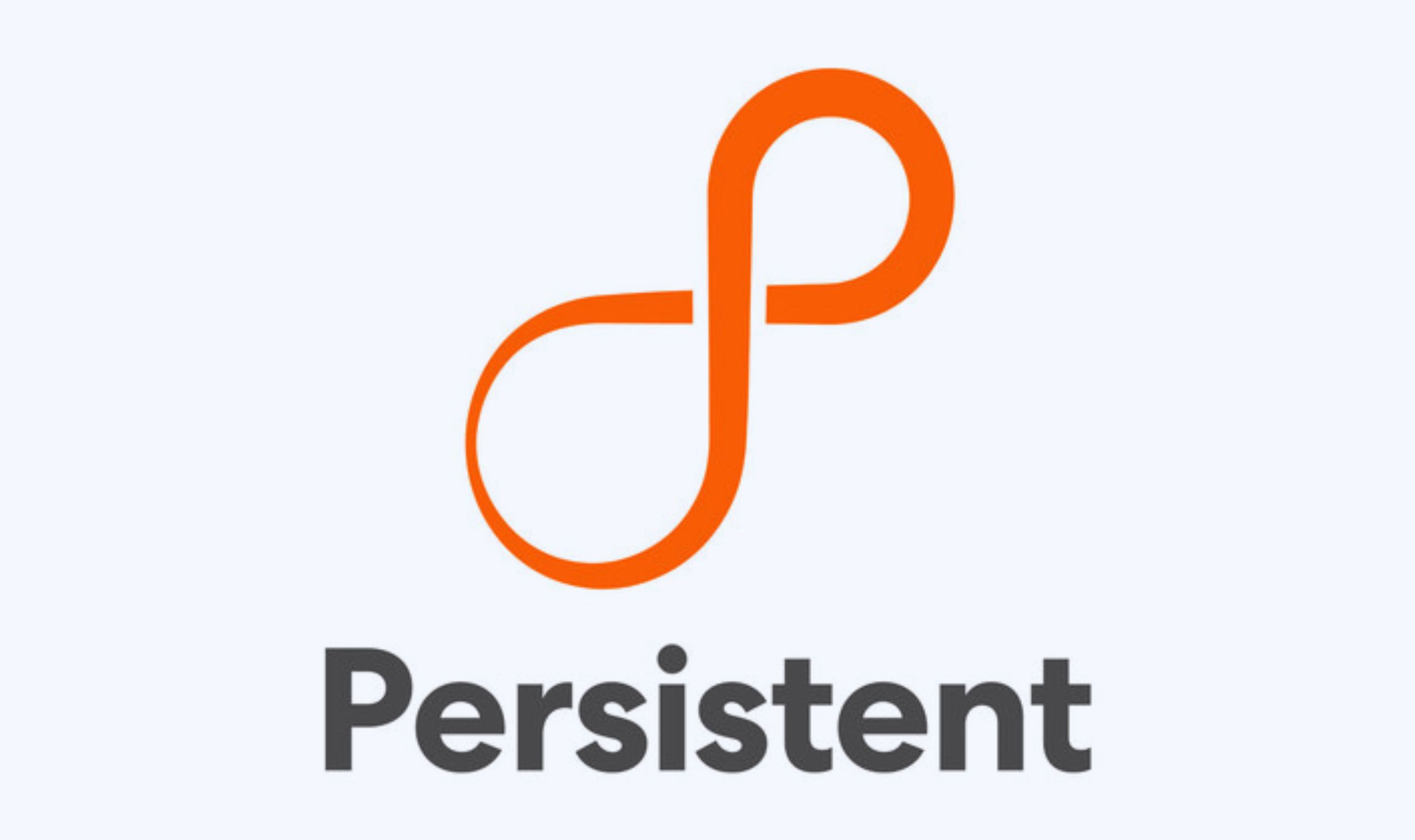In an increasingly volatile stock market environment, where fluctuations often test investor resolve, opportunities to buy into quality companies at discounted prices present a unique chance for wealth creation. One such opportunity recently came to light when JP Morgan issued a “Buy the Dip” recommendation for Persistent Systems, a leading IT services company, on February 18. This recommendation came after Persistent Systems shares experienced a six-day losing streak, making the stock ripe for a potential rebound. The stock surged by 4% on the same day, trading at Rs 5,747, marking a shift in sentiment and reigniting optimism about the company’s prospects.
JP Morgan’s analysis emphasized a promising outlook for Persistent Systems, citing a projected 30% upside potential based on a price target of Rs 7,200, up from the previous closing price of Rs 5,531. With such a robust recommendation, it’s essential to understand the factors driving the stock’s growth and the broader market trends influencing the IT sector. In this blog post, we will delve into the key elements that have shaped Persistent’s stock price trajectory, JP Morgan’s analysis, and why investors should pay attention to this high-quality growth compounder.
The Power of Buying the Dip: JP Morgan’s Strategy
The concept of buying the dip is a tried and tested strategy in stock market investing. It involves purchasing stocks when they have experienced a short-term decline, assuming that their long-term growth prospects remain strong. JP Morgan’s endorsement of Persistent Systems as a “buy” following a 7% drop in the stock last week is a timely reminder of this strategy’s effectiveness. The firm expects that this dip is temporary and that Persistent’s long-term growth will resume, particularly supported by strong earnings projections and an expanding portfolio of client engagements.
Persistent Systems, known for its high-quality services in the IT sector, has been grappling with a correction phase. Its stock fell over 7% in a short period, leading to some concerns about the company’s short-term performance. However, such market fluctuations are not uncommon in the tech sector, where macroeconomic factors, global market trends, and company-specific news often influence stock movements.
JP Morgan’s recommendation hinges on the belief that the stock has been oversold, offering a favourable entry point for investors. The brokerage firm highlighted Persistent’s strong fundamentals, impressive revenue growth, and growing deal pipeline, all of which are expected to propel the company forward over the coming quarters.
Revenue and Profitability Growth: Key Drivers for Persistent Systems
Persistent Systems is a prominent player in the IT services industry, offering a wide range of solutions across various sectors, including banking and financial services (BFSI), healthcare, life sciences, software, and high-tech industries. The company’s ability to innovate and adapt its service offerings to meet evolving client needs has resulted in impressive financial results over the years.
JP Morgan’s forecast for Persistent Systems is optimistic, projecting a 21% compound annual growth rate (CAGR) for revenue and a 29% CAGR for profit after tax (PAT) over the FY25-27 period. These figures suggest a robust growth trajectory driven by the company’s increasing market share, strong client retention, and expanding service portfolio.
1. AI and Platform-driven Services Strategy
One of the most notable strategies that have helped Persistent Systems carve a niche in the IT industry is its focus on AI-driven, platform-based solutions. The company’s ability to integrate cutting-edge technologies such as artificial intelligence (AI) into its service offerings has allowed it to capture new business opportunities, especially in sectors like BFSI and healthcare. These high-growth areas are expected to continue driving Persistent’s future revenue, as clients in these sectors increasingly seek advanced technological solutions to streamline operations, improve customer engagement, and drive innovation.
2. Record High Deal Bookings
Persistent’s deal pipeline is another area of focus for JP Morgan’s positive outlook. The company reported record-high deal bookings during the third quarter of FY24, amounting to $594.1 million in Total Contract Value (TCV) and $428.3 million in Annual Contract Value (ACV). These substantial figures demonstrate the strong demand for Persistent’s services and the company’s ability to secure high-value contracts. Notably, the deals were primarily won in sectors such as BFSI, healthcare, life sciences, emerging industries, software, and hi-tech, all of which have substantial growth potential.
The Role of Cost Management and Margin Expansion
Persistent Systems has also made strides in cost management and margin expansion. In the third quarter, the company posted a 30.4% year-on-year increase in net profit, reaching Rs 373 crore. This growth was achieved despite the seasonally weak quarter for the IT sector. The company also improved its operating margin by 90 basis points, bringing it to 14.9% for the quarter. These margin improvements are largely attributed to efficient cost control, lower subcontractor costs, and operating leverage. Moving forward, JP Morgan expects these margins to continue expanding as Persistent reaps the benefits of its cost management initiatives and increased revenue from high-margin services.
a) The Road Ahead: Persistent’s $5 Billion Revenue Target
Persistent Systems has set a bold revenue target of $5 billion by FY31. Achieving this goal would represent a strong 26% CAGR over the FY27-31 period. The company’s expansion into new verticals, such as AI, cloud computing, and digital transformation services, positions it well to meet this target. Additionally, Persistent’s focus on increasing its presence in global markets and enhancing its product offerings will be key drivers in achieving this ambitious goal.
Persistent’s strong financial health, coupled with its aggressive growth strategy, provides a solid foundation for long-term value creation. The company’s expansion into high-growth sectors, such as AI and cloud computing, is expected to pay dividends in the coming years, as demand for these technologies continues to soar.
b) Short-Term Volatility and Long-Term Potential
While the short-term volatility in Persistent’s stock price may have concerned some investors, the company’s long-term growth prospects remain strong. As mentioned earlier, JP Morgan’s positive outlook for the company is based on a combination of factors, including Persistent’s strong deal pipeline, record-high bookings, margin expansion, and its focus on AI-driven services.
It is important to note that the tech sector, in particular, can experience fluctuations driven by global macroeconomic factors, market sentiment, and changing customer demands. However, for long-term investors, these short-term corrections may present attractive entry points, as the underlying fundamentals of Persistent Systems remain robust.
c) Technical Analysis and Stock Price Outlook
From a technical perspective, Persistent’s stock has demonstrated resilience despite the recent decline. The company’s share price has experienced a 14% drop year-to-date, but this correction could be seen as an opportunity for investors to buy the dip, especially given the strong growth prospects highlighted by JP Morgan.
According to equity technical research by Motilal Oswal Financial Services, Persistent’s short-term trend remains sideways, with key support at the Rs 925 level and resistance around Rs 992-1,000. The stock is expected to experience a directional move once it breaks above the Rs 1,000 resistance level, which could signal the resumption of the uptrend.
d) Market Sentiment and the Role of Investor Behavior
Market sentiment plays a significant role in shaping stock prices, particularly in the short term. Persistent Systems, like many other companies, has experienced fluctuations in its stock price due to changes in investor sentiment. Positive earnings reports, new contract wins, and a strong product portfolio can bolster sentiment, leading to a rally in the stock price. Conversely, negative news, broader market sell-offs, or investor concerns about growth can lead to declines.
However, as long-term investors remain focused on the company’s fundamentals, they may view short-term volatility as an opportunity to accumulate shares at a discounted price. Persistent Systems’ strong position in the IT sector, combined with its ambitious growth targets and healthy financials, makes it an attractive stock for those looking for exposure to the booming tech sector.
Conclusion: A High-Quality Growth Stock for Long-Term Investors
Persistent Systems’ recent performance, coupled with JP Morgan’s “Buy the Dip” recommendation, highlights the company’s solid growth prospects in the IT sector. While short-term volatility has affected the stock, Persistent’s strong deal pipeline, expanding product portfolio, and focus on high-growth sectors such as AI and cloud computing position it well for long-term success.
For investors looking to capitalize on the growing demand for IT services and technology solutions, Persistent Systems presents an attractive investment opportunity. With a strong track record, a compelling growth story, and a solid plan for achieving its $5 billion revenue target by FY31, Persistent Systems is poised to remain a leading player in the IT services industry.
As always, investors should carefully assess their risk tolerance and investment goals before making any decisions, but for those with a long-term view, Persistent Systems represents a high-quality growth stock worth considering.















0 Comments